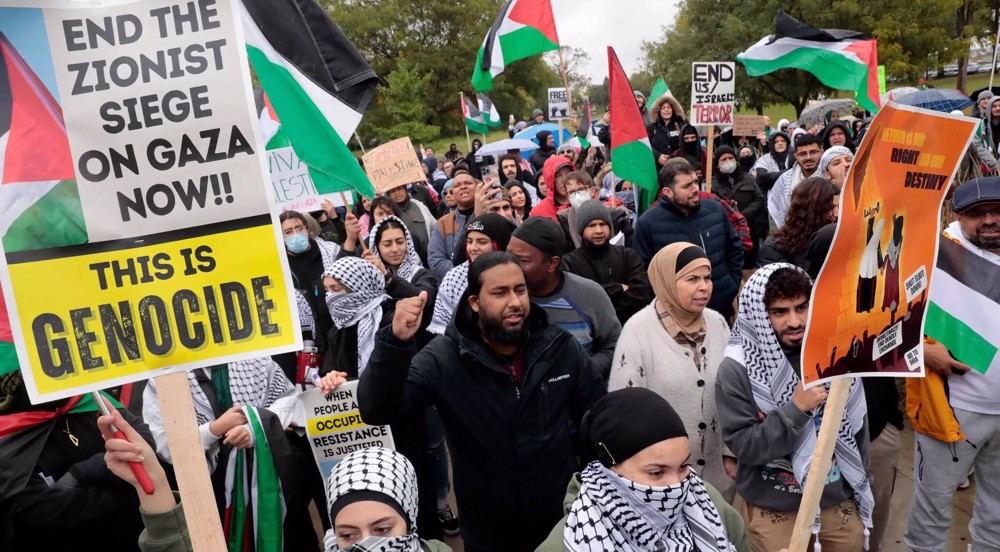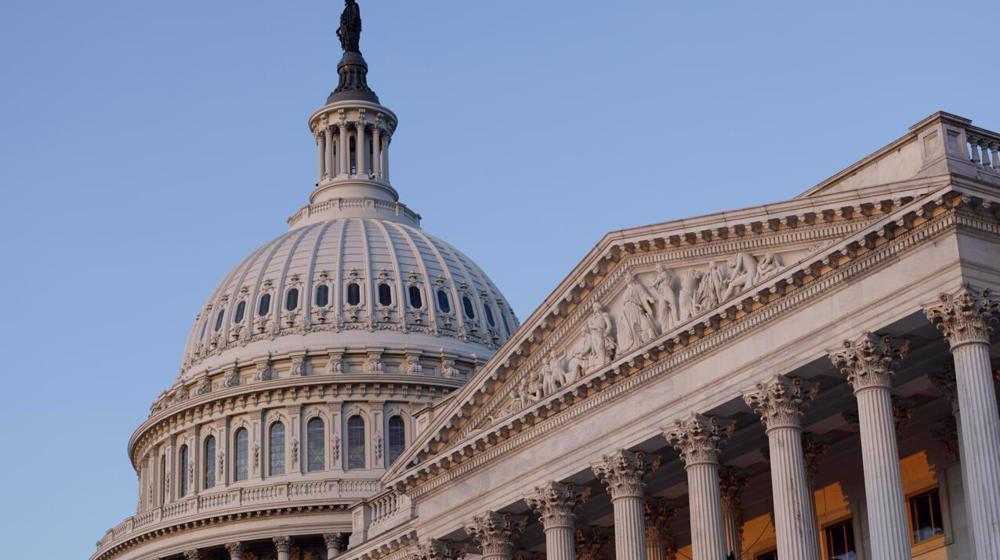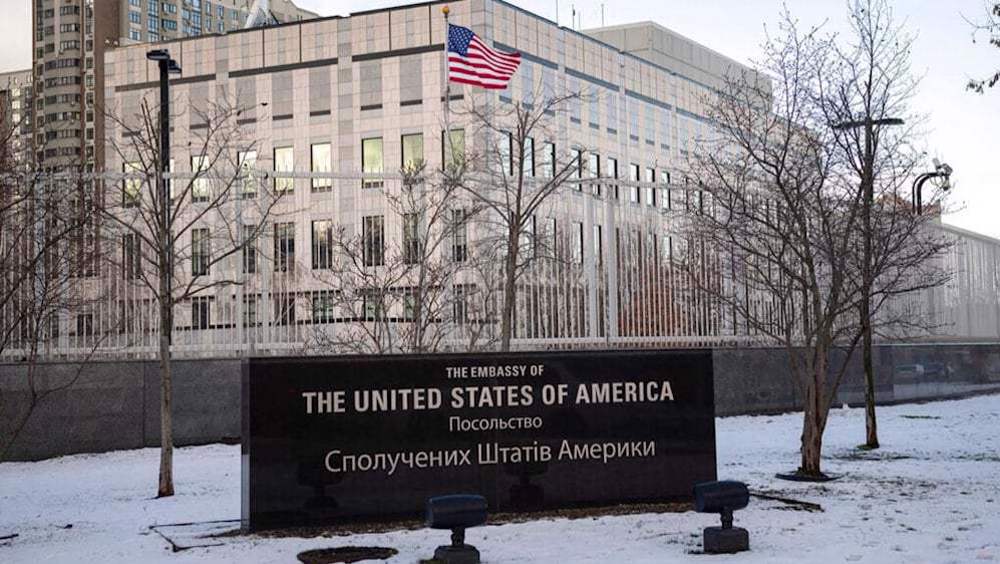US daily unveils classified part of report on Saudi link to 9/11 plot
A US daily unveils yet unsolved questions about links between two 9/11 terrorists and a Saudi diplomat and “imam” at King Fahad Mosque in Los Angeles amid lingering suspicions over the kingdom’s involvement in the terror events.
The mystery outlined in the still classified 28 pages of the official, though rushed, US government report on the terror incidents involves the links between the Saudi diplomat, Fahad al-Thumairy, a consular official in Los Angeles who also served as “imam” of the Saudi sponsored mosque and two of the Saudi hijackers identified as Nawaf al-Hazmi and Khalid al-Mihdhar, who visited the mosque upon their initial arrival in the US, the New York Times reported Saturday.
According to the report, US investigators were unable to find any definitive evidence of where and how al-Hazmi and al-Mihdhar spent their first two week in the United States, though by some accounts they “worshiped” at the King Fahad Mosque and may have stayed in a nearby apartment rented by the mosque.
A 2012 FBI document cited last year by an independent review panel concluded, however, that Thumairy “immediately assigned an individual to take care of al-Hazmi and al-Mihdhar during their time in the Los Angeles area,” the report added.
It further noted that the review largely upheld the conclusions of the 9/11 Commission on Saudi involvement, and the FBI is yet to fill other gaps in the timeline of those initial two weeks in January 2000.
The report then discloses that when the two hijackers resurfaced in early February, they made contact at a restaurant near the mosque with another Saudi citizen, Omar al-Bayoumi, who was on the Saudi government payroll through the Kingdom’s civil aviation authority.
When contacted by the FBI, Bayoumi claimed that his meeting with Hamzi and Mihdhar was coincidental. The US federal agents, however, believe that the meeting was prearranged when Bayoumi met with the Saudi diplomat and imam at the mosque just before he met the two future hijackers at the restaurant.
At the time, the daily reveals, Thumairy was “part of a network of representatives of the Saudi Ministry of Islamic Affairs, which finances mosque-building, trains clerics and proselytizes… Wahhabism,” a deviant and highly intolerant interpretation of Islam that is the official religion of the Persian Gulf kingdom.
Thumairy claimed during a 2004 “interview” by US investigators in Saudi capital Riyadh that his job at the Saudi consulate in Los Angeles was “to answer religious questions.”
However, the investigators wrote in their report following their interview that Thumairy appeared to be “deceptive” when questioned about his contacts, notably with Bayoumi. He even denied knowing Bayoumi, despite being presented with telephone records documenting exchange of 21 calls between them over two years.
Yet another unanswered suspicion is that Bayoumi also assisted Hamzi and Mihdhar to settle in the southern California city of San Diego in an apartment building where he himself resided by co-signing the lease and paying the security deposit and the first month’s rent for them, although they did reimburse him later.
According to the report, a former FBI official expressed skepticism that Bayoumi’s assistance to the hijackers came by chance, as claimed by him.
“I have to believe something was planned for the care and nurturing of these guys after they arrived,” said the ex-FBI official, Richard Lambert, who oversaw the probe into the hijackers’ contacts in the Bureau’s San Diego office in the year after the 9/11 attacks. “They weren’t too sophisticated, and they didn’t speak English. They needed help getting settled and making preparations.”
Additionally, the report adds, two Saudi naval officers living in San Diego also had telephone contact with Hazmi.
However, the daily insists, it was the Thumairy-Bayoumi connection that some US investigators found to be the most suspicious.

The 9/11 Commission’s final report mentioned that “we have found no evidence that the Saudi government as an institution or senior Saudi officials individually funded” al-Qaeda. Today, however, a number of Commission staff members point out that the wording did not rule out the possibility that lower-ranking Saudi officials had assisted the hijackers.
They also emphasized that the Commission operated “under extreme time pressure and was not able to follow up fully on every lead,” according to the report.
Meanwhile, in a statement in April, the 9/11 Commission’s co-chairmen Thomas Kean and Lee Hamilton insisted that they took all questions about a possible Saudi role in the plot seriously, following up on the leads in the 28 pages that remains classified.
They further noted that while the Commission had “not found evidence” that Thumairy assisted the hijackers, he was “still a person of interest” in the case.
This is while at the FBI, the September 11 terror plot officially remains an open case.
Iranians protest against Israel after Netanyahu ICC warrant
Germany undecided on complying with ICC arrest warrants for Israeli war criminals
VIDEO | Former FBI agent criticizes US Congress for 'outright corruption'
IRGC chief urges Muslim countries to cut aid routes to Israel
'New chapter in cooperation': Iran, Venezuela sign new MoUs
Jordan sentences former lawmaker for supporting Palestinian resistance
Basij volunteer forces hold massive drills in southwestern Iran
Israeli war criminals 'not welcome', US city says after ICC ruling














 This makes it easy to access the Press TV website
This makes it easy to access the Press TV website